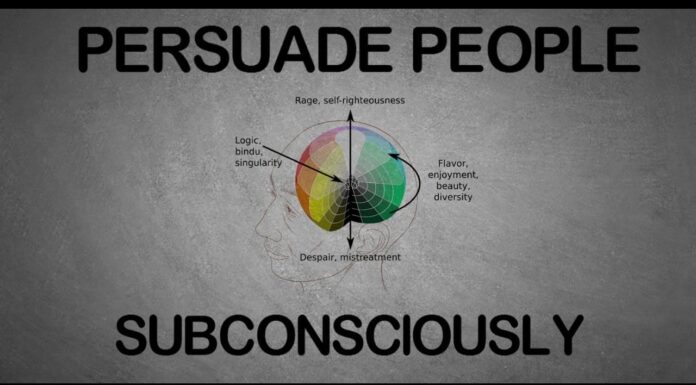“We should be totally free to be smart, but not totally free to be stupid.”
A friend asked about my political views the other day and it didn’t go well.
After a few seconds of initial ramblings on my part, my friend showed signs of serious regret having even asked the question. People sort of want to know, and they sort of don’t.
However, in a blog post, I think that I might have a shot.1 Now, if I had to put a label on myself, I’d call myself a science-fictionist.2 While that may sound outlandish, I’ve actually put some thought into it.
Here goes:
In my personal political view, there’s the before, the during, and the after.
The before = the fundamentals of nature and the patterns it creates.
The during = the rational reasoning in a given context of spacetime.
The after = the extrapolated future where humanity survives — and thrives.
I will explain what these means.
The before (causality)
In my science-fictionist view, the fundamentals of nature extend beyond the unbreakable laws of physics and into the natural patterns that our universe is producing. Such patterns may manifest as cosmic background radiation, but they might also be ripples on a pond during a rainfall. Through interference, the fundamentals of nature produces a vibrant and complex stream of causality that flows through spacetime.
Trippy.
A planet-killing meteor could crash into our home and there would be nothing “wrong” (i.e. unnatural) about the Earth being destroyed. And like that meteor, we humans could destroy this planet of ours as well. It wouldn’t be wrong per se; many life forms are naturally invasive — much at the peril (and sometimes destruction) of their host. In a strict natural sense, “right” and “wrong” aren’t very useful and shouldn’t be conflated with more reliable concepts such as “accurate” or “false”.
However, apart from a few people living on the international space station, we’re all Earth-dwellers. And we don’t yet have many alternatives in terms of moving ourselves elsewhere in the universe. And even if we did have a few options, it would be stupid (albeit not wrong) to destroy any of those homes.
“It’s wrong to destroy our planet,” is a false statement.
“It’s stupid to destroy our planet,” is an accurate statement.
As you’ll learn, in the absolute absence of moral entanglement, stupid and smart are both central to my political framework.
The during (rationality)
No matter which famous (infamous?) political idea you study, you’ll find that the most of those ideas have occurred as a consequence of the context in which they were implemented.
If I were living in a cozy cave thousands of years ago and a tribe of violent troublemakers came to slaughter me and take possession of my humble abode, I would surely fight for my survival. Not because I happen to have some intrinsic right to my life or to that cave. Not because the troublemakers happen to be intrinsically wrong in trying to take something from us.
I would fight because that’s the natural pattern of my context-based rationality.
Throughout human history, lots of people have felt the need to kill each other. They have felt the need to steal, rape, and enslave each other. Not primarily because some of them were right and some of them were wrong in some absolute sense, but mostly because both aggressors and victims found themselves in stupid (i.e. primitive) contexts.
The civility of society should be measured
by its capacity for general stupidity.
Primitive cave-dwellers from tens of thousand years ago were highly intelligent, but they were too preoccupied with surviving to engage in less stupid forms of progressiveness. It’s not right or wrong to make scientific discoveries, to cooperate as a species, and to create safe spaces were we can divert some of our physical and mental energy away from surviving and into exploration, art, and love. But it sure is smart.
Since there’s no such thing as ethical absolutes, there’s only what we as a society allow based on our general capacity for being either smart or stupid. Similar to superstitious beliefs, right and wrong as absolute concepts can never be proven, but what constitutes smart and stupid can be established through natural logic in the science-fictionist view:
As long as we have some idea of where humanity’s going.
The after (transcendence)
Stupidity isn’t likely to be eradicated anytime soon, but as conscious and reasoning beings, we can think rationally about our future as a species. From a broad rational perspective, our conceivable future seems to have three main branches:
Future 1 = we go extinct due to natural patterns beyond our control.
Future 2 = we go extinct due to circumstances induced by stupidity.
Future 3 = we go on existing for millions or even billions of years.
While there’s no right or wrong, and potentially not much of a free choice either, the third future should at least appeal to most of humanity. As follows, we can deduce that a journey signified by scientific discoveries and safe spaces for exploration, art, and love into that third future would be our smartest bet.
What can we assume about such a third future for humanity?
By extrapolation, we will take full control of our evolution and engineer our DNA with great precision. We will merge with artificial intelligence through augmentation. We will harness energies far beyond what we understand today. And while we may never be able to manipulate time or distance, we will be able to alter the way we perceive time and space. That is, if we aren’t stupid and kill ourselves first.
Rationally, we cannot trust any dogmatic ideologies of today to get us there.
Capitalism will break down eventually when we transcend ownership. Socialism will break down eventually when we transcend social structures. Liberalism will break down eventually when we transcend individuality. Communism will break down eventually when we transcend centralised power. Conservatism will break down when we eventually transcend traditions. Humanism will break down eventually when we transcend what we today think of as being human. Religious belief will break down eventually when we transcend superstition.
All ideologies and religious beliefs
born out of necessity will be
outgrown by auxiliation.
The only thing we, as humans, can trust will get us into the third future, is transcendence.
This science-fictionsit future is by no means an utopia, but it is the future we get if we manage to outsmart the many perils along the way. And even if we, for some reason, revert to a totalitarian society completely void of any scientific progress for thousands of years, thousands of years are still only a blink of an eye in the face of that unfathomable distant third future.
Beyond right or wrong, such a science-fictionist future demonstrates through extrapolation of natural patterns what is actually smart and what is actually stupid — today.
Photo by Rod Long on Unsplash.




---------------------
- Now, if you’re hoping to find out whether I’m biased to the left or the right of the political spectrum, you’ll be disappointed. I think they’re both fundamentally wrong and so, I side with neither of them. It’s not that I fall on the spectrum in-between these two poles, either. As they, at least in my view, are both beside the point, their tangent is equally unable to hit the spot for me.
- The label “science-fictionist” has typically been used to describe anyone who is a writer or a fan of science fiction, but I’d argue that we need plenty of this kind of thinking and creativity in politics as well.




























